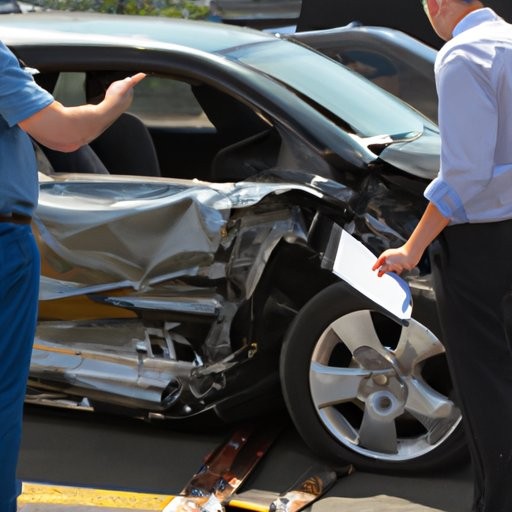How Does a Chicago Crash on I-94 Affect Your Personal Injury Claim?
Crashes on I-94 in Chicago, Illinois, can have a profound impact on those involved, particularly when it comes to personal injury claims. Understanding how these incidents influence your legal rights is essential for effectively navigating the aftermath. This article explores the critical aspects of personal injury claims following a crash on this major highway, offering insights into the legal landscape and practical steps to safeguard your interests.

What Is the Legal Framework for Personal Injury Claims in Chicago?
In Illinois, personal injury claims are governed by laws designed to ensure fair compensation for accident victims. When a crash occurs on I-94, the legal process begins with determining liability, which involves identifying the responsible parties. These could include other drivers, commercial vehicle operators, or even government entities responsible for road maintenance.
The concept of comparative negligence is pivotal in Illinois personal injury cases. Under this rule, a victim's compensation may be reduced by their percentage of fault in the accident. For instance, if you are found to be 20% at fault, your compensation will be reduced by that percentage. Gathering comprehensive evidence, such as police reports, witness statements, and video footage, is crucial to support your claim.
What Are the Statute of Limitations and Filing Requirements?
In Illinois, the statute of limitations for personal injury claims is typically two years from the accident date. Missing this deadline can result in losing the right to seek compensation. Therefore, it's vital to act promptly and consult with a legal professional to ensure all necessary paperwork is filed correctly and on time.
Cases involving commercial vehicles or multiple parties can be more complex, potentially extending the timeline and intricacy of legal proceedings. Working with an attorney familiar with highway accidents in Chicago can provide valuable guidance throughout the process.
What Factors Influence Compensation in I-94 Crash Claims?
Several factors can affect the compensation awarded in personal injury claims from I-94 crashes. These include the severity of injuries, the impact on the victim's ability to work, and the extent of property damage. Medical expenses, both current and future, are significant in determining compensation, as are any necessary rehabilitation or therapy costs.
Non-economic damages, such as pain and suffering, emotional distress, and loss of enjoyment of life, are also considered. Calculating these damages can be complex and may require expert testimony. Insurance companies might try to minimize payouts, so having strong legal representation is essential to advocate for your rights.
How Does Insurance Coverage Affect Settlement Negotiations?
Insurance coverage is a key element in personal injury claims. Illinois requires drivers to carry minimum liability insurance, but these limits may not cover all damages in a severe accident. In such cases, victims may need to explore additional compensation avenues, such as underinsured motorist coverage or pursuing claims against multiple parties.
Settlement negotiations are common in the claims process. While many cases are resolved through settlements, it's crucial to ensure that any agreement adequately covers all current and future expenses related to the accident. Legal counsel can provide critical support in evaluating settlement offers and negotiating terms that reflect the true value of your claim.
FAQs About Chicago I-94 Crash Personal Injury Claims
What should I do immediately after a crash on I-94?
After ensuring safety and seeking medical attention, document the scene, gather contact information from witnesses, and report the accident to law enforcement. These steps are crucial for building a strong personal injury claim.
How is fault determined in a multi-vehicle accident on I-94?
Determining fault in a multi-vehicle accident involves analyzing evidence such as traffic camera footage, eyewitness accounts, and police reports. An investigation may be necessary to establish the sequence of events and identify responsible parties.
Can I still file a claim if I was partially at fault for the accident?
Yes, under Illinois' comparative negligence rule, you can still file a claim even if you were partially at fault. However, your compensation will be reduced by your percentage of fault, so it is important to minimize your liability through evidence and legal support.
What types of compensation are available for victims of I-94 crashes?
Victims may be entitled to compensation for medical expenses, lost wages, property damage, and non-economic damages such as pain and suffering. The specific compensation available will depend on the details of the case.
How long does it typically take to resolve a personal injury claim from an I-94 crash?
The timeline for resolving a personal injury claim can vary based on the complexity of the case, the willingness of parties to negotiate, and the need for litigation. While some claims are settled within months, others may take years to reach a resolution.
How Can You Protect Your Rights After an I-94 Crash?
If you've been involved in a crash on I-94 in Chicago, Illinois, it's crucial to take proactive steps to protect your legal rights. Understanding the intricacies of personal injury claims and the factors that influence compensation can empower you to make informed decisions. Engage with experienced legal professionals who can guide you through the process, ensuring that you receive the compensation you deserve for your injuries and losses.


